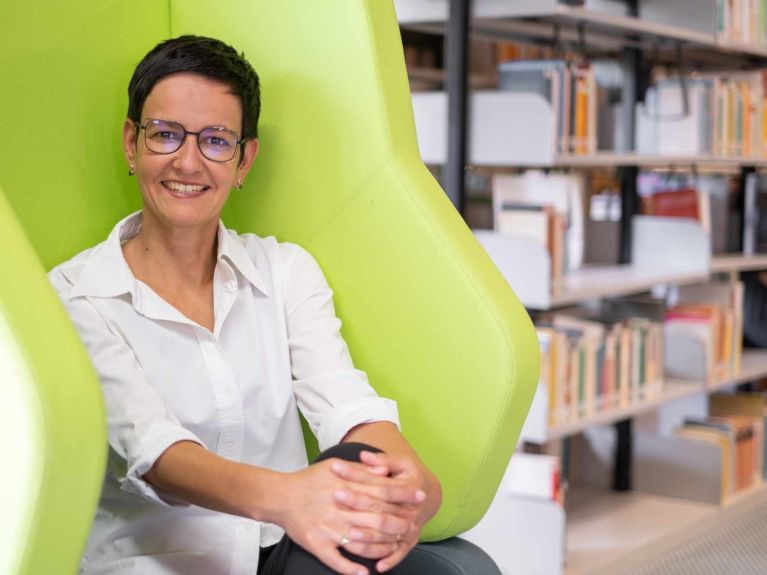Staying safe in the AI world
“We don’t want to be a brakeman” – talking with Mandy Schiefner-Rohs about pitfalls in the net and digital learning opportunities.

Professor Schiefner-Rohs, you are doing research at the interface of school development and digitalization. How safely do school children and their teachers in Germany surf the net?
Schiefner-Rohs: The topics of data security and the question of data competence are highly critical, and the issues gained importance during the Covid pandemic, especially in schools with online learning. Other countries, such as the Netherlands, Australia or the USA are already more experienced in this area. Australia has been experimenting with distance learning since the 1960s, and this is reflected in the nature of the discourse. In Germany we are currently encouraging users to develop sensible attitudes towards their personal data, and we’re helping them to develop a critical approach to information gained from the internet. Teachers are key multipliers in this respect.
We want to encourage a critical approach to information gained from the internet.
What kind of challenges are involved?
We all know that 123456 isn’t a secure password, but it is the most widespread one throughout the world. We all know that we shouldn’t feed search engines, and that too many cookies can cause tummy ache, but the majority of services are so convenient, just like fast food. Basically, data competence covers two main areas: on the one hand it’s more about statistical competence. In other words it’s a matter of equipping pupils with the ability to assess the actual significance of figures and their contexts, or graphic depictions, when they are encountered on the internet, and deciding how reliable they might be. On the other hand, data competence signifies a critical approach to information media, or a basic education in media, as outlined by the standing conference of the education ministers in their strategy Education in the Digital World which they revised in 2021. This provides guidance for schools as they help young people to thrive in a digital world.
So, this is where you and your research come into play?
Yes. We work together with teachers on concrete cases, for instance we are looking into the advantages and disadvantages involved when a child learns vocabulary via an app. Which data are being generated, how safe are they, and how reliable is the information that a child has learned ten per cent of the words, for instance? We want to encourage teachers to think about data without being a brakeman. We’re focussing on opportunities in this field, but we’re also very aware of the pitfalls.
Why do you think such topics need to be addressed in schools?
In my opinion it is the task of schools to promote critical media literacy and data competence with the help of qualified and sensitized teachers. If this were left entirely to the families, inequalities would become even greater. We have parents who are well-versed in this area. But we also have parents who are less well equipped and may not be able to afford support – their children should have the same opportunities.
Prof. Dr Mandy Schiefner-Rohs is a full professor of general education with a focus on school education at TU Kaiserslautern. Her research includes the interface between digital media, school and university education.
You would like to receive regular information about Germany? Subscribe here:

